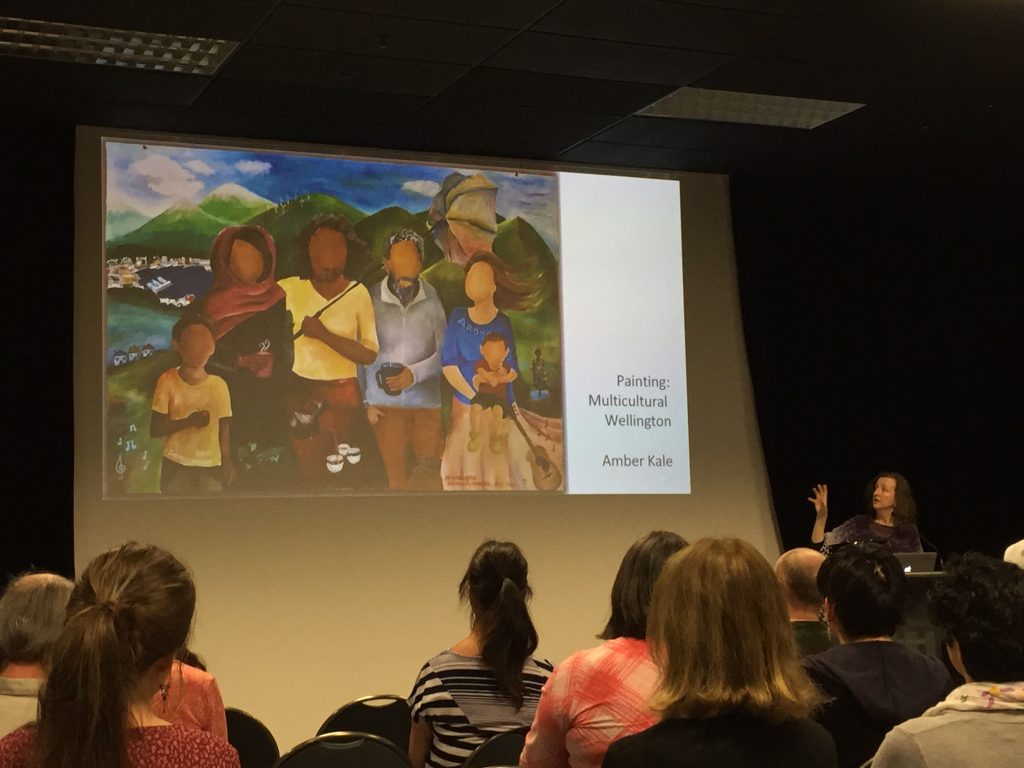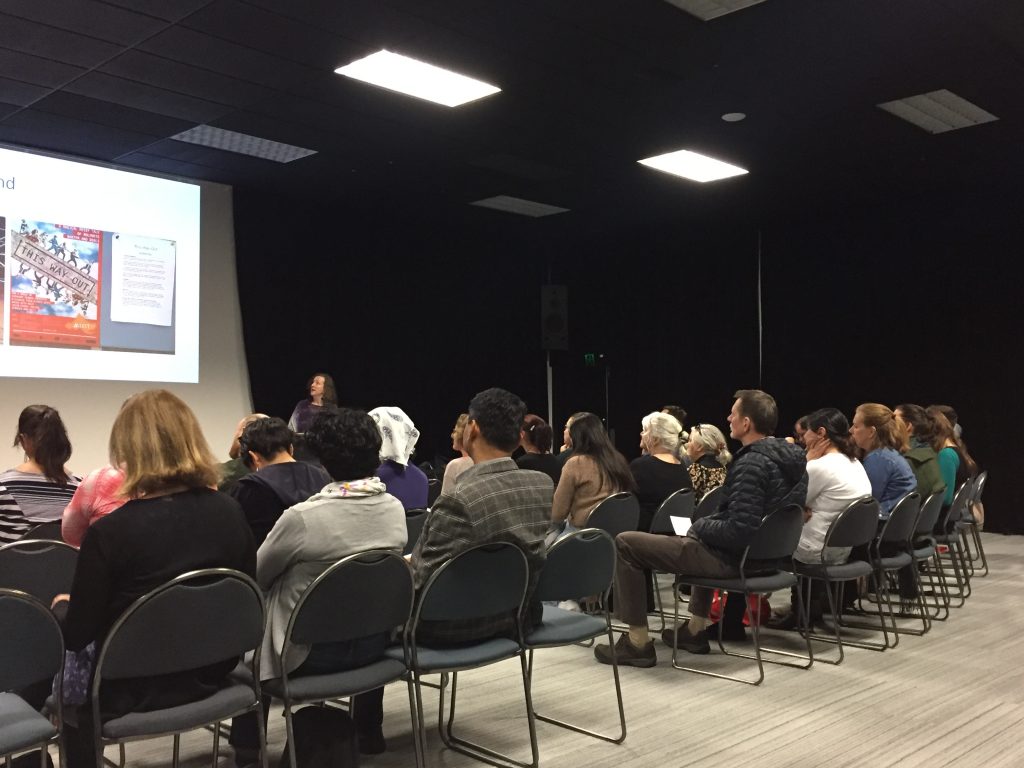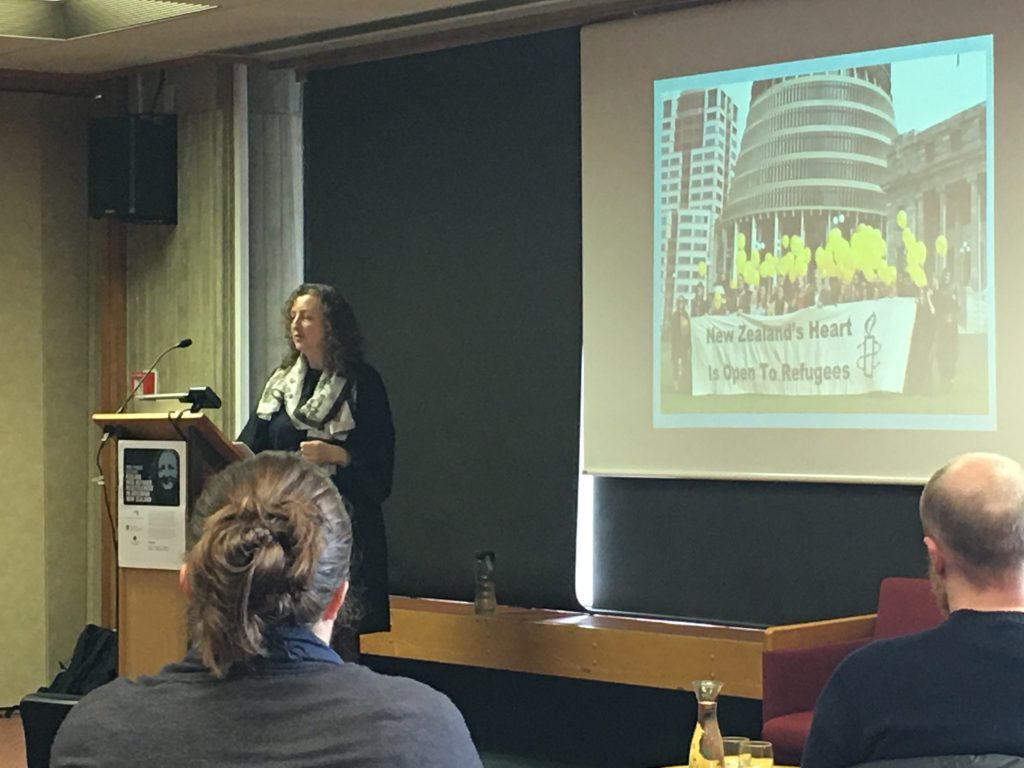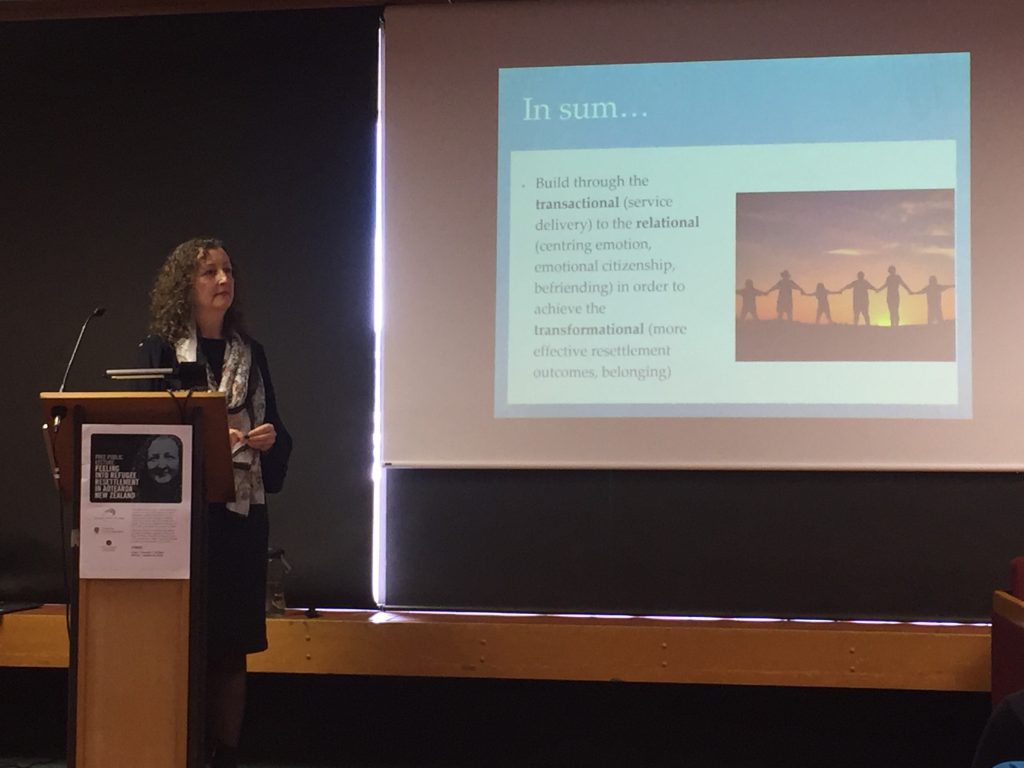Summary of talk on ‘Arts-based Research in the Context of Forced Migration and Resettlement’
Report by Neil Vallelly
In her second talk as Visiting Lecturer at the Centre for Global Migrations, Professor Sara Kindon introduced us to the benefits of participatory research in the context of refugee resettlement. Kindon illustrated how participation in community workshops and events fosters collective inquiry and creates alternative spaces for story-telling, which is especially important in refugee communities. As Kindon stated, “participatory research is carried out by local people rather than enacted upon them.” In doing so, it enables participants to be active in practices of meaning-making and to contribute productively to the shaping of social alternatives.
Kindon focused on arts-based participatory research, drawing on a huge number of examples from New Zealand and internationally. We witnessed the “mapping memories” project in Montreal, which provided young refugees the space to recount the stories of their displacement through a variety of artistic methods. Likewise, we were introduced to the idea of “body mapping” in South Africa, where participants use drawings of the body to tell their stories. Numerous examples from New Zealand included painting, diagramming, theatre, mixed media, dance, and puppetry. Through these examples, Kindon argued that arts-based participation can provide access to previously inaccessible spaces, both physical and psychological, through the articulation of bodies involved in collective activity. The humility of learning alongside others, Kindon observed, can provide a new orientation for the participants, introducing each member of the group to a new perspective on the world.
To exemplify the potential of arts-based research, Kindon invited audience members to draw an image without words that represented one of their core values. Audience members then shared these images with one another in small groups, with the other members of the group attempting to decipher the meaning of each image. What we learned as an audience is how meaning is always constructed in relation with others and, instead of treating refugees as objects of analysis, we can research alongside them to create a new and genuinely collective forms of knowledge.


Summary of talk on ‘Feeling into Refugee Resettlement’
Report by Neil Vallelly
“Emotion is everywhere and nowhere in refugee resettlement” argued the Centre for Global Migrations Visiting Scholar Professor Sara Kindon in this well-attended public talk at Dunedin Public Library. Professor Kindon’s point here was that while resettlement is unsurprisingly an emotional process, a whole host of emotions are often disregarded in the resettlement process. In particular, western conceptions of emotions as individual, internal, and pathological often supersede the social and cultural understandings of emotions that refugees possess, especially in terms of trauma. The trope of the traumatised refugee, Kindon observed, leads to an over-medicalisation of emotion in refugee resettlement, which negates the potential for refugees to draw on their own social and cultural practices in dealing with trauma. Furthermore, the resettlement process initially ties refugees to the state, mediated by NGOs and service providers, which produces a top-down and outside-in approach to resettlement, where governments decide priorities and apply these to lives of refugees.
Drawing on emotional geography, affect theory, and her decades of experience of working in refugee resettlement, Kindon asked us to imagine how we might re-think resettlement by placing emotion at the centre of the process. By working from the inside out, Kindon put forward a new strategy that focuses on building a sense of belonging, community, and inclusion for newly-settled refugees, where not only do they feel wanted and welcome but also feel like their knowledge and skills can contribute to shaping Aotearoa New Zealand society. By putting “feeling into resettlement”, Kindon imagined a future in which the governmental and non-governmental agencies involved in refugee resettlement can move beyond the limited and distant approach to emotion that presently dominates western societies. In doing so, these agencies can make space for the emotional worlds of refugees, the role of space and place in their emotions, and the ways in which emotion is produced in the interrelation of bodies. In many ways, Kindon not only posited a new approach to refugee resettlement, but a framework for re-imagining contemporary society in ways that allow emotions to be constantly in flux rather than fixed and instrumentalised. In doing so, Kindon urged us to keep emotions everywhere in order to stop them dissolving into nowhere, as is so often the case when emotions are medicalised and pathologised. This is a valuable lesson for all of us, no matter which field we work in.



